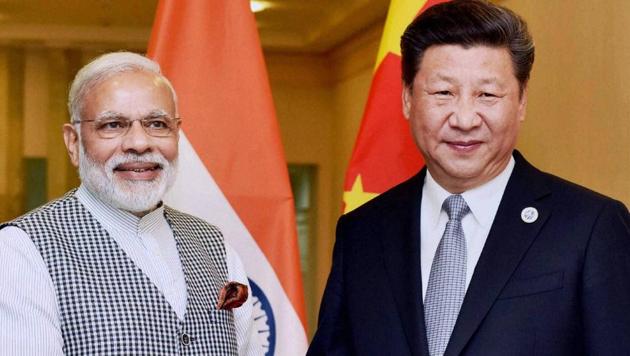Cooperation and chemistry: What to expect from Modi and Xi’s Wuhan summit
Officials say PM Narendra Modi and Chinese president Xi Jinping can cooperate in a host of areas such as economic relations, counter-terrorism efforts, regional security and climate change.
The informal summit between Prime Minister Narendra Modi and President Xi Jinping will be marked by practical cooperation and personal chemistry, officials familiar with preparations for the meet said.

The two leaders will meet in the Chinese town of Wuhan on April 27 and 28 to talk about their shared vision of the bilateral ties, they said.
“This is the meeting between two strong leaders of two major countries in Asia, discussing the state of the relationship and how they would like to see the ties moving ahead in the days and years to come... It’s all about practical cooperation and the personal chemistry between the leaders, who would discuss all aspects of the relationship, the region and more,” a diplomat said on condition of anonymity.
The ties between the two countries, key economies in Asia and partners in various regional groupings such as the BRICS (Brazil, Russia, India, China and South Africa) and Shanghai Cooperation Organisation (SCO), have been strained in the past year after a border standoff in Doklam region.
“A host of issues piled up, which virtually came in the way of practical cooperation that the two countries would have forged despite having their healthy differences. But the fact that the two countries could defuse all the possible flashpoints in the ties showed the resilience in the ties and how the top leadership sees their relationship,” another government official said.
The practical cooperation, he insisted, can be stepped up in a host of areas such as economic relations, counter-terrorism efforts, regional security architecture, climate change, working for an Asian century and strengthening multilateral organisation.
Another official said the way the US sees multilateralism, often undermining it, gives an opportunity to countries such as India and China to come together to discuss issues related to it.
“So in other words, the leaders would get a chance to discuss their larger vision for the region and the world,” the second official said.
Two countries have also been at loggerheads over the Belt and Road initiative, Beijing’s resistance to bring Pakistan-based militant Mazood Azhar under UN sanctions and China’s reservations over India becoming a member of the Nuclear Suppliers Group.
The officials also said the summit would give an opportunity for the leaders to put their personal chemistry to work. “Prime Minister Modi gave a public reception to President Xi in September 2014. Xi returned the gesture by receiving Xi in his hometown in Xian in May 2015. Whenever they had met, the leaders gave the indication that they are keen on taking the ties forward and they see it as a very important bilateral partnership,” the official said.
“The informal summit will highlight the personal friendship and enhance personal chemistry between the two leaders”, said Luo Zhaohui, China’s ambassador to India.






